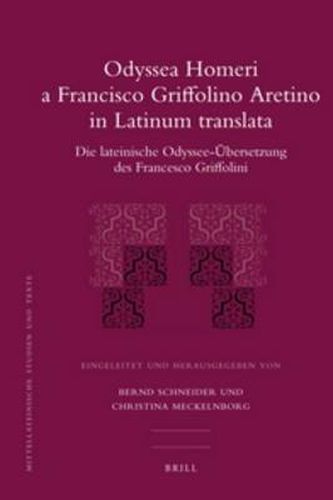Readings Newsletter
Become a Readings Member to make your shopping experience even easier.
Sign in or sign up for free!
You’re not far away from qualifying for FREE standard shipping within Australia
You’ve qualified for FREE standard shipping within Australia
The cart is loading…






In about the year 1462 Francesco Griffolini of Arezzo translated the Odyssey of Homer into Latin at the behest of Pope Pius II. In contrast to the most important of his predecessors in the field of Homer translation, Leontius Pilatus, who was still completely committed to the medieval method of literal translation, Griffolini made use of the skills acquired from the masters of humanist Latin and created a prose text which also appealed to classical criteria. This volume offers a critical text of this Odyssey translation edited on the basis of the manuscripts. The extensive introduction provides information about the life and work of Francesco Griffolini, examines his method of translation and clarifies the manuscript transmission of the text. The edition represents a contribution to the history of Homer translation in the Italian renaissance and forms an important basis for further study of the reception of Homer in humanism.
$9.00 standard shipping within Australia
FREE standard shipping within Australia for orders over $100.00
Express & International shipping calculated at checkout
In about the year 1462 Francesco Griffolini of Arezzo translated the Odyssey of Homer into Latin at the behest of Pope Pius II. In contrast to the most important of his predecessors in the field of Homer translation, Leontius Pilatus, who was still completely committed to the medieval method of literal translation, Griffolini made use of the skills acquired from the masters of humanist Latin and created a prose text which also appealed to classical criteria. This volume offers a critical text of this Odyssey translation edited on the basis of the manuscripts. The extensive introduction provides information about the life and work of Francesco Griffolini, examines his method of translation and clarifies the manuscript transmission of the text. The edition represents a contribution to the history of Homer translation in the Italian renaissance and forms an important basis for further study of the reception of Homer in humanism.